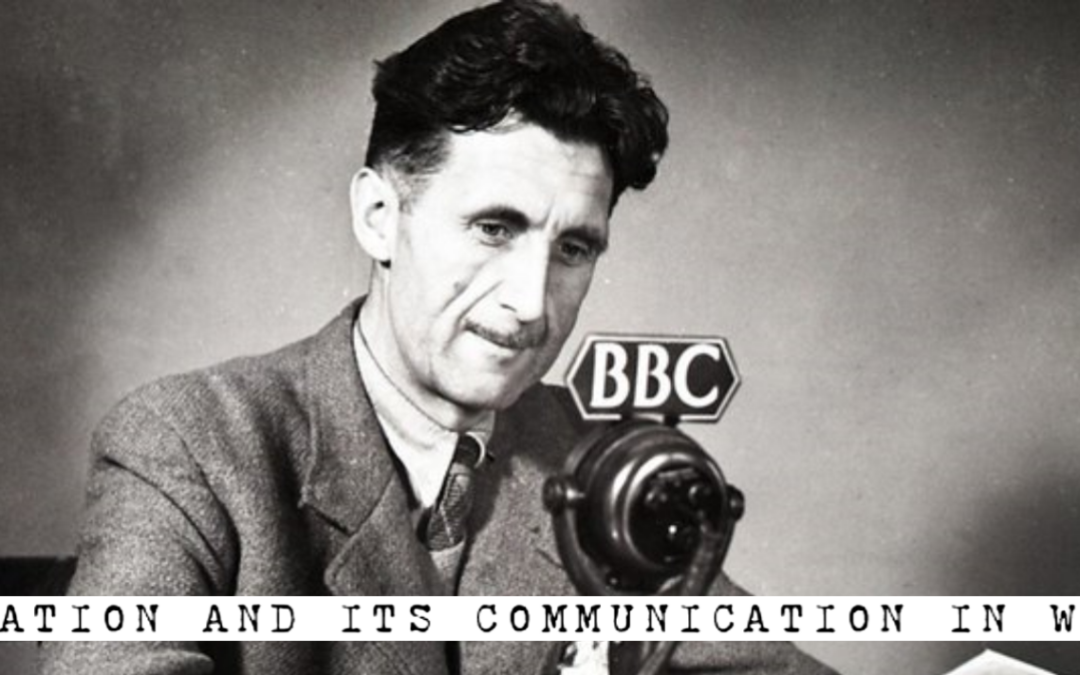“The Ministry of Information (MOI) was established by the British government at the outbreak of the Second World War and began work on 4 September 1939. It was responsible for issuing ‘National Propaganda’ at home and abroad, as well as controlling news and information deemed to be of military value.
Using all available modes of communication, the MOI issued pamphlets and posters to local authorities, issued guidance to the press, published books and illustrated magazines, curated exhibitions, produced films, organised radio broadcasts, undertook pioneering social surveys and even used the RAF to drop printed material over hostile territories. This encapsulates a host of ways in which human beings – both successfully and unsuccessfully, intentionally and unintentionally, openly and circumspectly – attempt to communicate to each other.
The ‘Publishing and Communications History of the Ministry of Information, 1939-45’ project being undertaken by the Institute of English Studies in collaboration with the Department of Digital Humanities at King’s College London explores the ways in which the MOI approached its task. Approaching the MOI as a study in communications history, the project is exploring the complex relationships that developed between the department and its audiences. It is interested in the Ministry’s relationship with the public, the physical form of its messages and the material mode of their transmission. Moreover, by tracing developments throughout 1939-45, it is assessing to the extent to which the MOI learnt from its mistakes in order to adapt to changing circumstances.” (moidigital.ac.uk)
As part of the AHRC-funded project ‘A Publishing and Communications History of the Ministry of Information, 1939-45’, the MOI Project held an international conference on the subject of information and its communication in wartime. Although with a particular interest in the Second World War, the MOI Project wished to set this in a much larger context, and so the theme was to be explored throughout several periods and areas.
Today is the first day of our conference on Information in Wartime. Welcome to our delegates! #moidigital
— MOI Digital (@moidigital) July 25, 2017
The #moidigital conference has officially begun! pic.twitter.com/3nReQfTFYE
— Henry Irving (@drhenryirving) July 25, 2017
With a handful of pastries and a cup of coffee, the first day began with great success. Panels for day one included: ‘Pre-1939’, ‘Educating the People’, ‘Control and Censorship’ and ‘Transatlantic Relations’ – intersected, of course, with discussion and debate. The first day also comprised of a keynote lecture from Professor David Welch, on the topic of ‘Persuading the People. British Propaganda in WWII’.
Aside from a well timed safety alarm, interrupting the keynote and long awaited drinks reception, day one served as a fantastic start to the conference and furthered excitement for day two.
Very excited to be at #moidigital conference: 1st thing have learned is that Senate House Lib didn't evacuate in WW2 but worked with MoI
— Kate Bradley (@katebradleykent) July 25, 2017
https://twitter.com/charlottegaga/status/889837598713270273
Recurrent themes in military-media comms: loyalty, ethics, access & control, deadlines, morale & truth says Mark Dunton #moidigital
— Simon Tanner (@SimonTanner) July 25, 2017
The second day, now in the depths of the Senate Room, included the panels: ‘Appealing to Neutrals’, ‘Art, Designs, and Exhibitions’, ‘Radio and Film’ and ‘Post-1945’. The ever evolving questions, ideas and points of interest continued to develop throughout day two, eventually coming to a close with a tour of Senate House and a screening of MoI films from Postdoctoral Fellow, Hollie Price. Featuring films from the Imperial War Museum Film Archive, British Pathé and BFI DVD The Complete Humphrey Jennings Vol.2: Fires Were Started, the Information and Communication conference closed with great success.
No better place for a conference on wartime information than Senate House &a no better room than the Senate Room #moidigital pic.twitter.com/9naRDxmgui
— Citizen Wald (@CitizenWald) July 26, 2017
If you want more of the MOI Project or missed out on the conference, why not register for The Lost Film Shows: Screening Films on the Home Front (25 November)?
In 1940, the Ministry of Information launched its mobile film show scheme. Running for the rest of the war, the Ministry’s mobile film units were vans containing projectors and screens that were driven around the country by a driver-projectionist, to give free film shows in village halls, schools and factories. The event will recreate a film show in the former home of the Ministry with a selection of information films and documentaries on the war effort and the home front. 1940s dress is encouraged and the films will be followed by tea and cake.
As part of the Being Human festival, the event will celebrate the many shows given for voluntary groups and societies including Townswomen’s Guilds, Working Men’s Clubs, the Home Guard and Women’s Institutes. In the accompanying talk, Hollie Price – Postdoctoral Fellow on the Ministry of Information Project based at the School of Advanced Study – will discuss her research on the organisation of these shows and their role in local communities on the home front.
Find out more about MOI Digital or follow them on Twitter.




